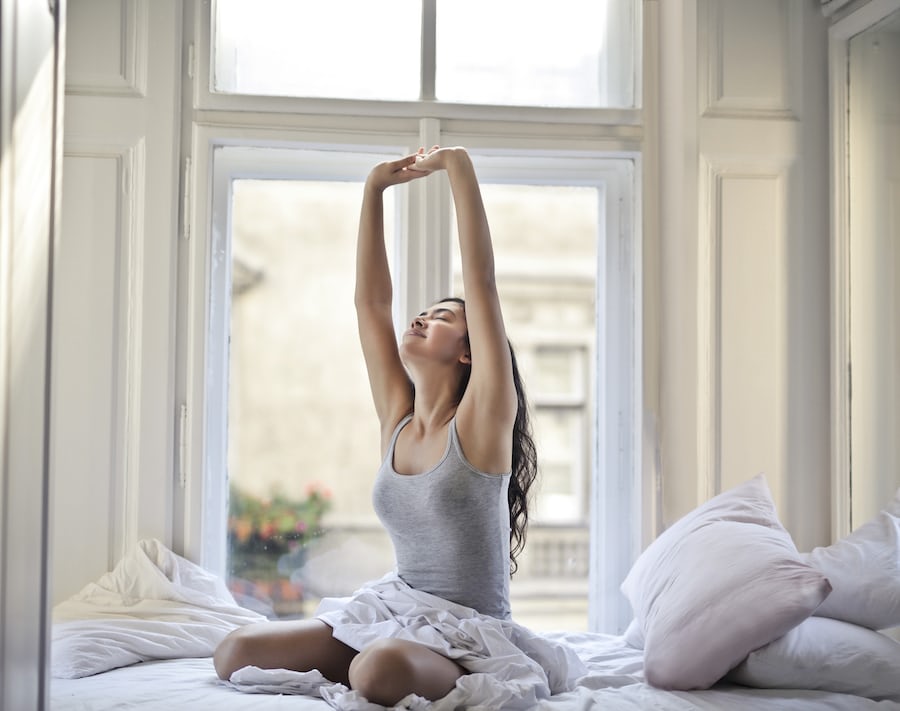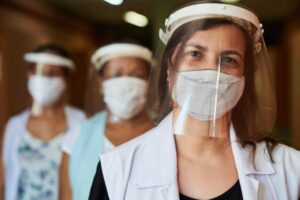
TIPS FOR BETTER SLEEP WHEN RECOVERING FROM A CONCUSSION
October 12, 2022
We all know good sleep is essential to good health, and it’s even more critical for people who are recovering from vestibular migraines, concussions and other causes of dizziness and imbalance. But sometimes consistent sleep quality can be elusive and frustrating. Fortunately, there are some tips that can help when it comes to getting good sleep.
8 tips for better sleep when recovering from a concussion or vestibular migraine
1.Designate the bed for sleep and intimacy only – Avoid scrolling on your phone, watching TV or doing any kind of work in bed, so your brain associates bed with time for rest and sleep, not being alert and awake.
2. Create a sleep-inducing environment in your bedroom – Blackout curtains, white noise and a cool temperature can make the room more conducive to falling asleep and staying asleep. Soothing scents like lavender essential oil can also be helpful.
3. Consistent bedtime and wake time – Getting your body on a regular schedule can make a big difference in training the brain to fall asleep faster and sleep more deeply. Another key factor is your wind-down routine. Avoid vigorous exercise, bright lights and screen time at least an hour before bed. Instead, opt for a calming yoga or stretch routine, meditation, reading from a book, or listening to music, a podcast, or audiobook to help your brain enter sleep mode more readily.
4. Minimal to no naps – A twenty minute power nap can be a great battery recharger, but anything beyond that is likely to interfere with your night time sleep schedule. If you need to doze for a bit, set an alarm to keep the nap short and sweet.

5. Move – Regular exercise helps reduce stress and promotes better sleep. If you are sedentary, try starting with a few minutes of standing and walking around your house each hour you are awake. If you are able to safely take a walk in your neighborhood, start with a short one, and work up to 20-30 minutes.
6. Supplements – Magnesium and melatonin are commonly used to aid in sleep, but even though you can get these over-the-counter, talk to your pharmacist or primary doctor to discuss safety and dosage.
7. Hydration – hydrate early in the day, and taper off toward bedtime. This will reduce getting up to use the bathroom at night, which can break up quality sleep and make it hard to fall asleep after. Avoid caffeine after lunchtime and alcohol several hours before bed.
8. Talk to your doctor – If the above things aren’t helping, a sleep study or medication maybe be helpful.
_____
Are you concerned that you might be experiencing concussion symptoms after a car accident? We’re here to help. Consult our concussion clinic for a free evaluation, and let us help you get back on the road where you belong.
TIPS FOR BETTER SLEEP WHEN RECOVERING FROM A CONCUSSION
October 12, 2022
We all know good sleep is essential to good health, and it’s even more critical for people who are recovering from vestibular migraines, concussions and other causes of dizziness and imbalance. But sometimes consistent sleep quality can be elusive and frustrating. Fortunately, there are some tips that can help when it comes to getting good sleep.
8 tips for better sleep when recovering from a concussion or vestibular migraine
1.Designate the bed for sleep and intimacy only – Avoid scrolling on your phone, watching TV or doing any kind of work in bed, so your brain associates bed with time for rest and sleep, not being alert and awake.
2. Create a sleep-inducing environment in your bedroom – Blackout curtains, white noise and a cool temperature can make the room more conducive to falling asleep and staying asleep. Soothing scents like lavender essential oil can also be helpful.
3. Consistent bedtime and wake time – Getting your body on a regular schedule can make a big difference in training the brain to fall asleep faster and sleep more deeply. Another key factor is your wind-down routine. Avoid vigorous exercise, bright lights and screen time at least an hour before bed. Instead, opt for a calming yoga or stretch routine, meditation, reading from a book, or listening to music, a podcast, or audiobook to help your brain enter sleep mode more readily.
4. Minimal to no naps – A twenty minute power nap can be a great battery recharger, but anything beyond that is likely to interfere with your night time sleep schedule. If you need to doze for a bit, set an alarm to keep the nap short and sweet.
5. Move – Regular exercise helps reduce stress and promotes better sleep. If you are sedentary, try starting with a few minutes of standing and walking around your house each hour you are awake. If you are able to safely take a walk in your neighborhood, start with a short one, and work up to 20-30 minutes.
6. Supplements – Magnesium and melatonin are commonly used to aid in sleep, but even though you can get these over-the-counter, talk to your pharmacist or primary doctor to discuss safety and dosage.
7. Hydration – hydrate early in the day, and taper off toward bedtime. This will reduce getting up to use the bathroom at night, which can break up quality sleep and make it hard to fall asleep after. Avoid caffeine after lunchtime and alcohol several hours before bed.
8. Talk to your doctor – If the above things aren’t helping, a sleep study or medication maybe be helpful.
_____
Are you concerned that you might be experiencing concussion symptoms after a car accident? We’re here to help. Consult our concussion clinic for a free evaluation, and let us help you get back on the road where you belong.
Contact National Dizzy and Balance Center. We specialize in diagnosing and treating vestibular disorders, including concussions. Our talented team members can evaluate the extent of your concussion and design a personalized plan to relieve your symptoms. To learn more about our approach to concussion management, please contact us online or by phone. Or if you’re ready to get started, schedule your free medical consultation today
Contact National Dizzy and Balance Center. We specialize in diagnosing and treating vestibular disorders, including concussions. Our talented team members can evaluate the extent of your concussion and design a personalized plan to relieve your symptoms. To learn more about our approach to concussion management, please contact us online or by phone. Or if you’re ready to get started, schedule your free medical consultation today






